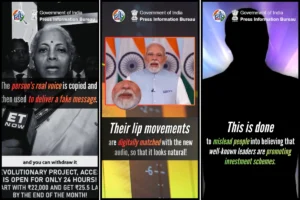
REFERENCE IMAGE
Essel Group Chairman Subhash Chandra and Zee Entertainment Enterprises (ZEEL) CEO Punit Goenka have been prohibited by the Securities and Exchange Board of India (SEBI) from occupying directorial or key managerial roles in listed companies or their subsidiaries. SEBI’s decision was based on investigations that revealed Chandra and Goenka had misused their positions to divert funds for personal gain. As per an interim order issued on June 12, the two individuals are required to step down from their positions until further notice.
The recent order by the SEBI regarding Subhash Chandra and Punit Goenka should be considered in conjunction with the interim order issued on April 25, 2023, in the Shirpur Gold Refinery Ltd matter. SEBI’s order highlighted that the individuals had transferred the assets of ZEEL and other Essel Group listed companies to their associate entities, resulting in personal benefits. The investigation revealed an organized scheme involving multiple entities, with funds being diverted through 13 entities within a short span of two days.
According to the investigation, the SEBI found that ZEEL lacked proper governance structures to prevent unethical practices. The flagship company of the Essel Group, ZEEL, was allegedly used by Subhash Chandra and Punit Goenka as their personal piggy bank. The investigators highlighted the significant decline in ZEEL’s share price from Rs 600 to Rs 200 between fiscal years 2019 and 2023, despite the company’s profitability, suggesting underlying issues. They also noted a substantial reduction in promoter shareholding from 41.62% to the current level of 3.99% during the same period.
An investigation was initiated into Subhash Chandra and Punit Goenka following the resignation of two independent directors of ZEEL in November 2019. The directors raised concerns, including the appropriation of ZEEL’s fixed deposit by Yes Bank to settle a loan taken by related entities without the approval of ZEEL’s board.
During the investigation, it was revealed that Subhash Chandra had provided a “Letter of Comfort” (LoC) dated September 4, 2018, for a Rs 200 crore loan owed by Essel Group Mobility. The LoC stated that the Rs 200 crore fixed deposit held by Yes Bank, belonging to any of the Essel Group companies, including ZEEL, could be utilized to settle the loan. Consequently, Yes Bank adjusted the loans of seven associated entities using ZEEL’s Rs 200 crore.
ZEEL disclosed that the Rs 200 crore had been repaid by the associate entities. However, since Subhash Chandra and Punit Goenka had signed the Letters of Comfort (LoCs) without informing or consulting the board, they were found to be in violation of the provisions under the Sebi (Listing Obligations and Disclosure Requirements) Regulations of 2015.
When SEBI requested information regarding the payments received by ZEEL from the associate entities, ZEEL claimed that all funds had been fully returned between September 26, 2019, and October 10, 2019. However, upon further investigation, SEBI found that the returned money actually belonged to ZEEL and was intentionally routed through various other entities in a layered manner to create the illusion that it was being repaid by the associate entities.
The SEBI has discovered that ZEEL made false claims in its annual report for the fiscal year 2020 regarding the receipt of funds from associate entities. The regulator found that these payments were fraudulent book entries, and therefore, ZEEL’s disclosure in the annual report was considered a misstatement or misrepresentation. The SEBI order reveals that this misrepresentation was part of a larger scheme orchestrated by the promoter family of ZEEL, which involved the issuance of a Letter of Comfort by Subhash Chandra to Yes Bank, the default by associate entities resulting in the appropriation of ZEEL’s fixed deposit by Yes Bank, complex transactions through interconnected entities to create the appearance of fund receipt, and misleading submissions to SEBI. The purpose of this scheme was to divert the assets of ZEEL and other listed companies of the Essel Group to the promoters.
To read more such news, download Bharat Express news apps


















